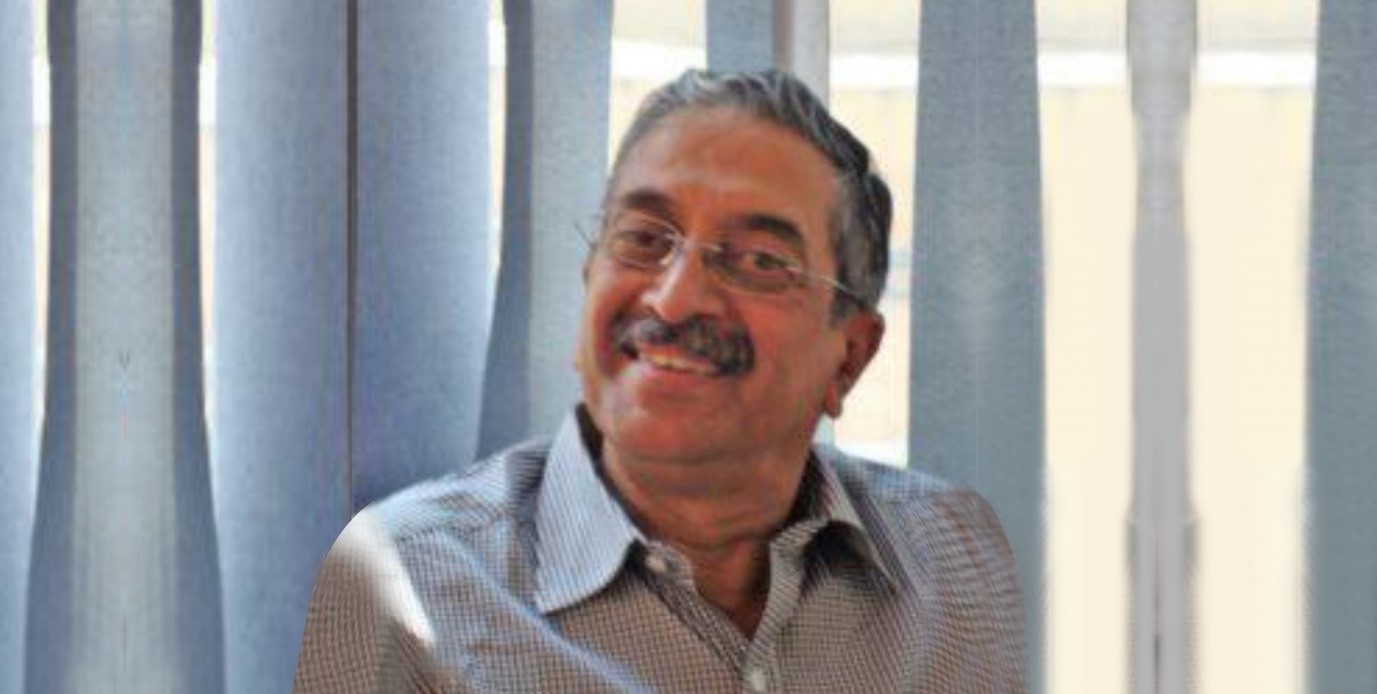Coronavirus or COVID-19 needs no introduction.
Given the magnitude of the problem, practically all the countries in the world, including many in South East Asia, have ordered a complete/partial lockdown in their countries, in order to minimise the spread of this dangerous virus. Given the scale of distress most people are being subjected to, mental health aspects too need to be addressed simultaneously. It is very important for people to maintain a ‘healthy mindset’ at this point in time and help those who are particularly vulnerable to mental health challenges.
We spoke to Dr. Kalyanasundaram S, a Bengaluru-based Consultant Psychiatrist and an Honorary Adviser to the Bengaluru Branch of Richmond Fellowship Society, regarding the probable impact of COVID-19 (coronavirus disease) on the mental health of people. In the first part of his interview, he talks to us about the risks to mental health, both in people with or without a history of affliction, and what to do in case of any manifestation of such illness.
Doctor, what are your observations as a psychiatrist regarding mental health in the current scenario?
Dr. KS: Persons with mental health issues are by and large vulnerable to day-to-day stressful events; their ability to cope with such stressors is generally not always adequate. This may result in them having a difficult time to cope with such situations.
It’s well known that any physical and or psychological stressors can tilt the balance negatively, even in those who are well under the control of their symptoms and have been managing their lives effectively.
It’s a common observation that, when you are treating someone with depression or anxiety, when they have a viral fever that lasts for a week or ten days, any kind of viral fever – sometimes specific illnesses like Dengue, they (patients) come (to us) with a worsening of their mental health symptoms even though they have been under control for weeks to months. We see this fairly frequently in our clinics.
So, is this just another virus?
Dr. KS: This is a new and a virulent virus, and scientists across the globe are trying desperately to understand its mechanics while coming to terms with the damage it has caused within the span of a couple of months to several thousands of people across the globe, including causing deaths of many.
In addition to the damage the virus has been causing, there has been, and continues to be a lot of media attention. We are also being constantly bombarded with plenty of information/messages literally by the minute through social media like Facebook, Twitter, and WhatsApp. Net result, we are being inundated with information overload which includes fake news too! Several posts/forwards are purely in the realm of fear-mongering, and the vulnerable ones are unable to sift ‘the grain from the chaff’, resulting in people becoming more anxious than normal.
When a person is anxious and stressed, they are more likely to ‘believe’ anything and everything as they are not in a position to differentiate fact from fantasy!
Keep in mind that a viral fever of any variety is a trigger – all the more so for people with mental health challenges like anxiety or depression.
In that case, can we say that the coronavirus has the same impact on mental illness as any other viral infection?
Dr. KS: Many viral fevers are self-limiting. In the present COVID-19 case, however, there is an added possibility of imminent fatality in a small percentage of those who contract it. And for some people, the fear of getting infected by COVID-19 is so real that anyone sneezing or coughing in their vicinity, or having a fever, cold or running nose, would make them think that the person is infected with the COVID-19 virus, and their fear of catching the infection often hits the roof!
Across South-East Asian countries and in other parts of the globe, almost everyone has heard of this virus and all are desperately looking out for themselves and their near and dear ones. Although they may have had absolutely no contact whatsoever with someone with this coronavirus, the fear can aggravate mental health symptoms in vulnerable.
Now that lockdown has been implemented in many countries, people and especially their children, are being forced to stay indoors. This has started causing a lot of friction and unpleasantness at home, often resulting in kids becoming cranky and defiant!
What is to be done in the case of relapse of a mental health ailment during this period of crisis?
Dr. KS: One of the better-known anxiety disorders, and a debilitating one at that, is Obsessive-Compulsive Disorder (OCD). Here, people either have repetitive ideas flooding their brain which they cannot get rid of or as a compulsion, engage in repetitive acts like washing or checking. In the current scenario, we are telling people to wash their hands repeatedly, for x number of seconds. Those who are vulnerable and have borderline issues can expect to see an escalation of symptoms.
This is just one example of a possible relapse scenario. Anxiety could be another.
Like any other relapse, we need to augment the treatment strategies. We will need to understand the trigger factors and suggest the psychological supportive measures/supportive therapy that must be put in place, if need be. In case it is found that the symptoms are interfering with their biological functions, and their functioning is compromised, augmentation of medication will also help.
First, though, it is important that they reach out to us for help as soon as they observe a relapse or an increase in their symptoms.
What is supportive therapy?
Dr. KS: It’s a treatment method that is designed to improve, reinforce, or sustain a patient’s physiological well-being or psychological self-esteem and self-reliance resulting in emotional and psychological support during this crisis. Here, the person seeks help from a qualified therapist and talks about their concerns and worries, explaining (and often examining) their fears and anxieties, and getting help to deal with them.
1.1.1Pointers for people with known cases of mental health issues- It is a known fact that “Persons with mental health issues are by and large vulnerable to day-to-day stressful events; their ability to cope with such stressors is generally not always adequate.” Acceptance is the key.
- Symptoms could show up / a relapse could occur. So, watch out for any changes. And let your caregiver know.
- Consult your doctor/psychiatrist/therapist in case of the above happening (to you or your loved one), and follow up on augmentation suggested
- Go for supportive therapy if need be.
- Take your medication without fail, and as per schedule.
- Plan out a routine for yourself.
- Take care of your physical health.
- Eat judiciously and sleep well.
- Keep yourself and your environment clean.
Do you expect that in the next couple of weeks, more people would be needing help from mental health professionals?
Dr. KS: Unfortunately, some people have shown a clear lack of discipline, and are not taking the matter seriously enough. India is on the verge of community spread, although this has already happened in some parts of the world and this is rather unfortunate, to say the least.
During this community threat phase, a larger number of people are likely to get affected. And that is one of the reasons why the government has been taking many steps to prevent such a spread: avoiding crowded areas, generally keeping your environment clean, keeping a respectable distance, washing your hands frequently with soap, etc.
Clear and detailed instructions have also been provided by bodies like the Indian Council of Medical Research (ICMR), Government of India, and the World Health Organisation (WHO). We all must ensure that we follow these guidelines so that the spread of the coronavirus is minimised. If we do not follow the advice, the number of people affected could increase much more, and as a corollary, one can anticipate more people suffering from mental health issues.
What about people who do not have any known mental health challenges?
Dr. KS: There are many people who have no mental health issues. But, an element of anxiety lurks in most of us, and rears its head occasionally, especially in stressful situations. Given a certain situation, we do go through an anxious phase in life not amounting to an illness or needing mental health intervention. There are quite a few people who are prone to anxiety but are able to cope in their day-to-day life; such anxiety doesn’t amount to any dysfunction or debilitation, needing any intervention.
Overall, anxiety-related symptoms can worsen. Even if it does not pre-exist, some people may become temporarily dysfunctional. If they take care of it, are being rational about things, have supportive families, do not keep going to the Internet frequently to check what online information has to say about their symptoms (to see if it is amounting to a disease needing help), etc., most will not need help from a mental health professional. But anxiety can make them feel as if they need such help. In such cases, it is advised that such people seek help from competent medical professionals to overcome the problem.
What about families with senior citizens/three generations under a roof?
Dr. KS: Elderly population is at greater risk due to age-related problems. Further, they have their own set of fears and anxieties. People with hypertension and diabetes are at a considerably larger risk. They sometimes voice their anxieties clearly and do so frequently. Or, they may not say it out directly and instead express their fears through different means like asking repeated questions, being unable to concentrate, not sitting in one place for more than a few minutes, not being able to eat properly, not sleeping well or at all, or showing some somatic (bodily) symptoms.
What should caregivers watch out for? They may also be going through their frustrations at this point in time…
Dr. KS: First of all, in these trying times, it is vital that everyone learns to keep his/her cool – in fact, make a conscious effort to do so.
These are stressful times, and we have to deal with them – be it for a week, a month or till such time things get better. If, you are a praying person, pray. If you are one who meditates or does yoga, do that. And if you think you are dealing with a stressful situation, step away from it (for a while) and do something different — read a book, colour, listen to music or to the prayer you are supposed to be doing. In effect, distract yourself and do something that is beneficial to you (and others too, if possible).
Each person needs to find their own methods of coping with the current situation.
This interview was first published in Citizen Matters, an online civic media website supported by Oorvani Foundation.
For the latest updates on sea.progress.im, subscribe to our Telegram Channel https://bit.ly/telePiM
Our correspondent’s highlights from the symposium are meant as a fair representation of the scientific content presented. The views and opinions expressed on this page do not necessarily reflect those of Lundbeck.




